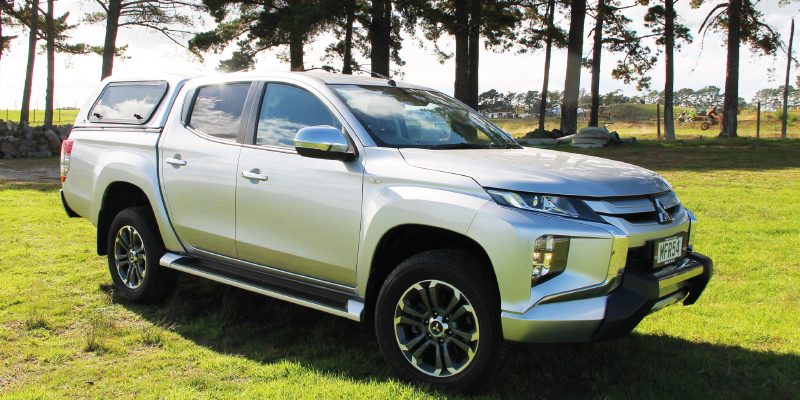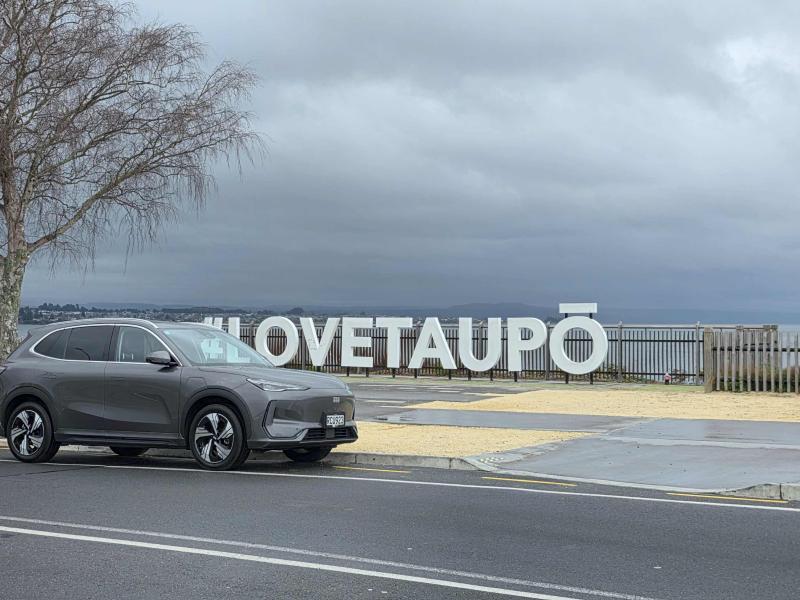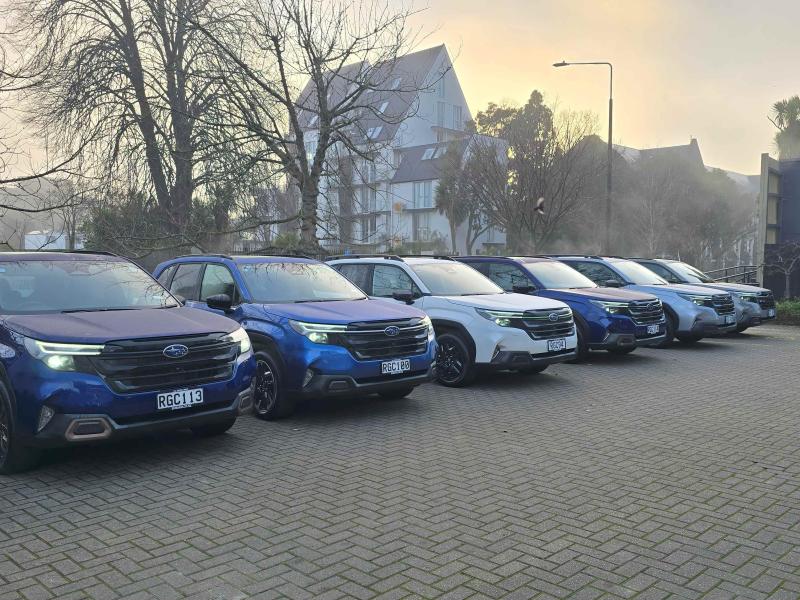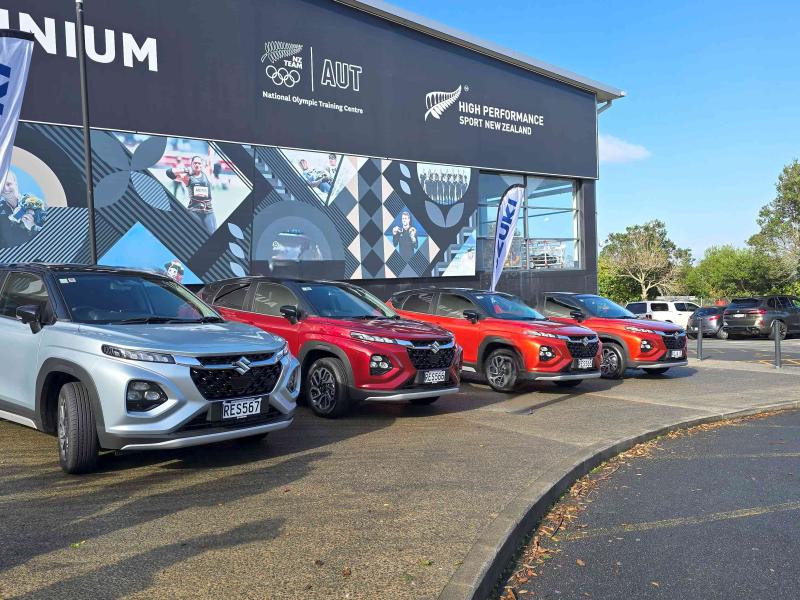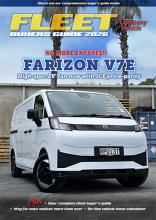The registration tables tell us 4WD is king, but if you don’t really need all four wheels digging, a 2WD Triton GLX-R could almost pass itself off as a four paw, in terms of looks anyway.
You save a fair whack of weight too – somewhere on the order of 125kg between a 4WD and a 2WD – which contributes to improved fuel savings and an increased payload capacity, so you can carry more. That’s usually a good thing in a ute.
And the nomenclature is cool too – something of a masterstroke on the part of Mitsi’s marketing mob – this is not merely a GLX, its a GLX-R, which lends an air of (Racy-ness? Rambunctiousness? Rebelliousness?) to the whole package.
And it’s a good package thanks to the 2018/19 redesign which introduced the new look, the reworked front suspension, the upgraded specification, the tickle up of the tried and true 2.4 litre turbocharged diesel and of course, the extra cog in the ‘box, which maximises the full potential of that 135kw/437Nm MIVEC motor.
For most Company Vehicle readers, the 2WD will meet most requirements. We’ve driven the GLX-R on gravel, we’ve done a little lightweight paddock work and taken a little time with the 2WD on shallower inclined boat ramps.
The torque out of that 2.3 turbodiesel is usually sufficient for most applications of this nature and it certainly is handy for others: close quarters inner city driving for example, or open road cruising when fully laden.
Which leads us nicely into the handling characteristics of the 2WD Triton. With this particular vehicle – with the canopy on the rear deck – the Triton handles very well.
The front end of the ute has benefited from Mitsubishi’s ‘’beefing it up’’ and this has also resulted in improved precision and control. This is something which is noticeable across the range.
Meanwhile, the back end of the Triton is extremely predictable, made even more so with the inclusion of the canopy our tested vehicle.
The canopy also allows the Triton to quickly get down to its factory-stated (and better) fuel economy figures thanks, we suspect, to its streamlined appearance. Mitsubishi claims 8.6 litres per 100km for this model, but we saw consumption figures in the high 6’s and low 7’s out on the open roads.
Of course, that was without loading out to the 940kg payload and nor were we towing the Triton’s stated 3000kg, but then fuel consumption evaluations at the factory don’t incorporate those either.
What does affect fuel figures is the weight of the vehicle in general. The Triton weighs less than its competitors, which also means the payload is a little lighter and its tow rating is lower too.
The features which make up the Triton range’s five-star ANCAP score more than make up for a few kilograms here and there, however.
Clearly, the Triton is already equipped with active traction control, seven airbags, hill start assist, Smart Brake and brake assist, but in GLX-R trim, it gains, forward collision mitigation or autonomous braking – which alerts the driver audibly and if no action is taken, applies the brakes automatically – and lane departure warning as standard.
GLX-R model Tritons also get reversing cameras integrated into their seven-inch touchscreen smartphone link audio display system which is both Android Auto and Apple Carplay compatible. Bluetooth telephony is standard, as is voice activation.
The GLX-R Triton 2WD auto makes a good case for those who want to save on fuel, meet H&S requirements and have a damn good ute on their fleet – and a ute with a 10 year Diamond warranty to boot.
Specifications:
BODY TYPE 4 door ute
DRIVE Rear/ 6 speed auto
ENGINE TYPE MIVEC, 4-cylinder turbodiesel
ENGINE CAPACITY 2442cc
MAX POWER 135kW @ 3500rpm
MAX TORQUE 437Nm @ 2500rpm
L/100KM (COMBINED) 8.4 (official)
CO2 EMISSIONS 218g/km
PAYLOAD 940kg
ANCAP RATING 5 Star
PRICE $37,990


